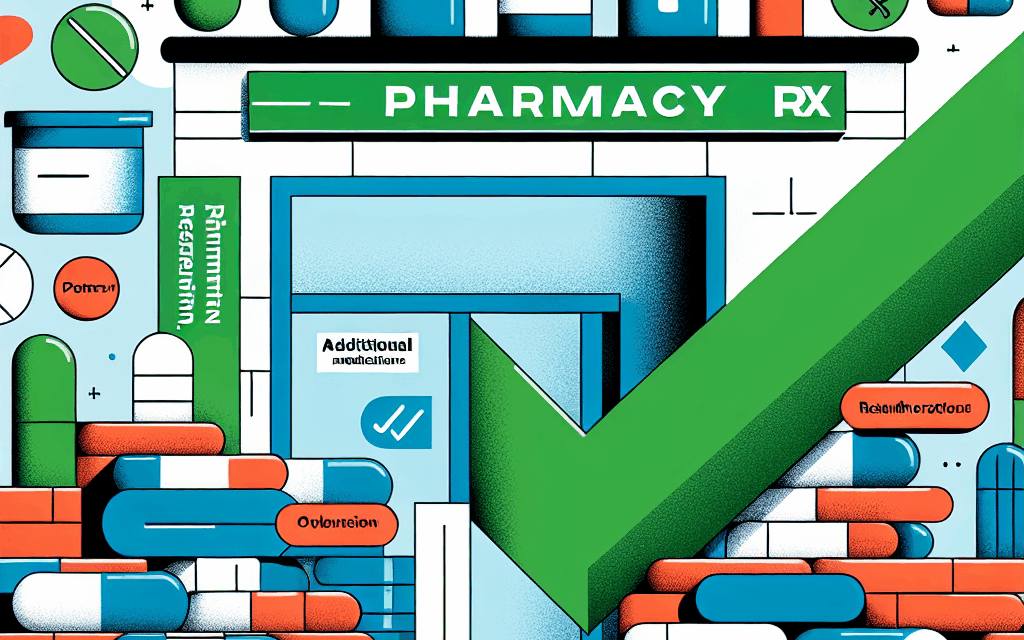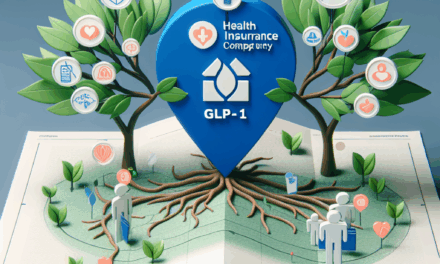Optum Rx Reduces Reauthorization Barriers for Additional Medications
In the ever-evolving landscape of healthcare, the management of prescription medications is a critical component of patient care. Optum Rx, a leading pharmacy care services provider, has taken significant steps to streamline the process of medication reauthorization, particularly for patients requiring additional medications. This article delves into the various aspects of how Optum Rx is reducing reauthorization barriers, enhancing patient access to necessary treatments, and ultimately improving health outcomes.
Understanding Reauthorization in Pharmacy Care
Reauthorization is a process that requires healthcare providers to obtain approval from insurance companies or pharmacy benefit managers (PBMs) before a patient can continue receiving a specific medication. This process can be cumbersome and time-consuming, often leading to delays in treatment and increased frustration for both patients and healthcare providers.
Reauthorization is typically required for medications that are expensive, have potential for misuse, or are prescribed for chronic conditions. The rationale behind this process is to ensure that medications are being used appropriately and that patients are receiving the most effective treatments. However, the complexities involved can create significant barriers to access.
- Impact on Patient Care: Delays in reauthorization can lead to interruptions in therapy, worsening of health conditions, and increased healthcare costs.
- Administrative Burden: Healthcare providers often spend considerable time navigating the reauthorization process, detracting from patient care.
- Variability in Policies: Different insurers and PBMs have varying requirements, making it challenging for providers to keep track of what is needed for each patient.
Optum Rx recognizes these challenges and has implemented strategies to simplify the reauthorization process, ultimately benefiting both patients and providers.
Innovative Solutions by Optum Rx
Optum Rx has introduced several innovative solutions aimed at reducing the barriers associated with medication reauthorization. These solutions leverage technology, data analytics, and streamlined processes to enhance efficiency and improve patient access to medications.
One of the key innovations is the use of advanced data analytics to identify patients who may require reauthorization. By analyzing prescription patterns and patient histories, Optum Rx can proactively reach out to healthcare providers to initiate the reauthorization process before it becomes a barrier to care.
- Automated Alerts: Providers receive automated alerts when a patient’s medication is approaching the reauthorization deadline, allowing them to take timely action.
- Integrated Systems: Optum Rx has developed integrated systems that allow for seamless communication between providers, pharmacists, and insurers, reducing the time spent on paperwork.
- Patient-Centric Approach: By focusing on the needs of patients, Optum Rx ensures that the reauthorization process is as smooth as possible, minimizing disruptions in therapy.
These innovations not only streamline the reauthorization process but also empower healthcare providers to focus more on patient care rather than administrative tasks.
Case Studies: Success Stories from Optum Rx
To illustrate the effectiveness of Optum Rx’s initiatives, several case studies highlight the positive impact of reduced reauthorization barriers on patient care and outcomes.
One notable case involved a patient with rheumatoid arthritis who was prescribed a biologic medication requiring frequent reauthorization. Prior to Optum Rx’s intervention, the patient experienced multiple delays in receiving their medication, leading to increased pain and decreased mobility. After implementing a proactive reauthorization strategy, Optum Rx was able to reduce the time taken for approval from weeks to just a few days. As a result, the patient reported significant improvements in their condition and overall quality of life.
- Case Study 1: A diabetic patient requiring insulin therapy faced frequent interruptions due to reauthorization delays. Optum Rx’s automated alerts allowed the healthcare provider to submit reauthorization requests promptly, ensuring uninterrupted access to medication.
- Case Study 2: A cancer patient undergoing chemotherapy experienced delays in obtaining anti-nausea medication. With Optum Rx’s integrated systems, the reauthorization process was expedited, allowing the patient to receive timely treatment and manage side effects effectively.
These case studies demonstrate how Optum Rx’s efforts to reduce reauthorization barriers can lead to improved patient outcomes and satisfaction.
Statistics Highlighting the Need for Change
The need for reducing reauthorization barriers is underscored by various statistics that reveal the impact of these challenges on patient care. According to a survey conducted by the American Medical Association (AMA), nearly 90% of physicians reported that prior authorization delays negatively affect patient care.
Furthermore, a study published in the Journal of Managed Care & Specialty Pharmacy found that 30% of patients experience treatment delays due to prior authorization requirements. These delays can lead to worsening health conditions, increased hospitalizations, and higher healthcare costs.
- Increased Costs: The AMA estimates that the administrative burden of prior authorization costs the healthcare system approximately $23 billion annually.
- Patient Non-Adherence: A significant percentage of patients (up to 20%) abandon their prescribed medications due to prior authorization hurdles.
- Provider Frustration: Over 70% of healthcare providers express frustration with the prior authorization process, indicating a need for reform.
These statistics highlight the urgency of addressing reauthorization barriers and the potential benefits of initiatives like those implemented by Optum Rx.
The Future of Medication Reauthorization
As healthcare continues to evolve, the future of medication reauthorization will likely see further advancements aimed at reducing barriers and improving patient access. Optum Rx is at the forefront of this movement, advocating for policies that prioritize patient care and streamline administrative processes.
One potential avenue for improvement is the adoption of standardized reauthorization processes across insurers and PBMs. By creating uniform guidelines, healthcare providers can navigate the reauthorization landscape more efficiently, reducing confusion and delays.
- Telehealth Integration: The rise of telehealth may also play a role in expediting reauthorization processes, allowing for quicker consultations and approvals.
- Patient Empowerment: Educating patients about their medications and the reauthorization process can empower them to advocate for their own care, leading to better health outcomes.
- Collaboration with Stakeholders: Ongoing collaboration between healthcare providers, insurers, and PBMs will be essential in creating a more efficient reauthorization system.
By embracing these changes, Optum Rx and other stakeholders can continue to improve the medication reauthorization process, ultimately benefiting patients and enhancing the overall quality of care.
Conclusion
Optum Rx’s efforts to reduce reauthorization barriers for additional medications represent a significant advancement in pharmacy care. By leveraging technology, data analytics, and innovative solutions, Optum Rx is streamlining the reauthorization process, improving patient access to necessary treatments, and enhancing health outcomes.
The case studies and statistics presented in this article underscore the importance of addressing reauthorization challenges and the positive impact that effective solutions can have on patient care. As the healthcare landscape continues to evolve, it is crucial for stakeholders to collaborate and advocate for policies that prioritize patient needs and streamline administrative processes.
In summary, Optum Rx’s initiatives serve as a model for how healthcare providers can work to reduce barriers to medication access, ultimately leading to better health outcomes and improved quality of life for patients. The future of medication reauthorization holds promise, and with continued innovation and collaboration, we can expect to see further improvements in this critical area of healthcare.





